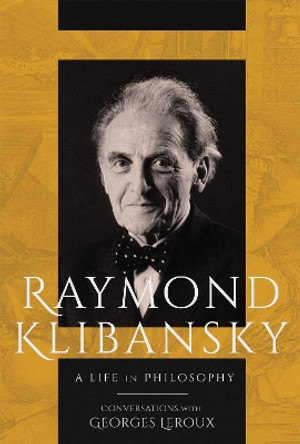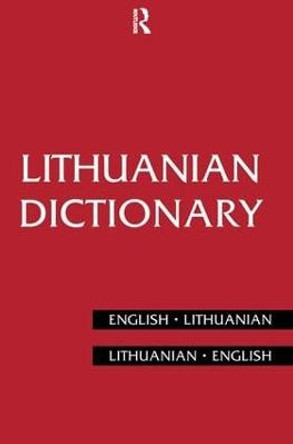Description
The Golden Age of the Lithuanian Yeshivas tells the story of the last chapter of Jewish rabbinical schools in Eastern Europe, from the eve of World War I to the outbreak of World War II.
The Lithuanian yeshiva established a rigorous standard for religious education in the early 1800s that persisted for over a century and continues to this day. Although dramatically reduced and forced into exile in Russia and Ukraine during World War I, the yeshivas survived the war, with yeshiva heads and older students forming the nucleus of the institutions. These scholars rehabilitated the yeshivas in their original locations and quickly returned to their regular activities. Moreover, they soon began to expand into areas now empty of yeshivas in lands occupied by Hasidic populations in Poland and even into the lands that would soon become Israel.
During the economic depression of the 1930s, students struggled for food and their leaders journeyed abroad in search for funding, but their determination and commitment to the yeshiva system continued. Despite the material difficulties that prevailed in the yeshivas, there was consistently a full occupancy of students, most of them in their twenties. Young men from all over the free world joined these yeshivas, which were considered the best training programs for the religious professions and rabbinical ordination. The outbreak of World War II and the Soviet occupation of first eastern Poland and then Lithuania marked the beginning of the end of the Yeshivas, however, and the Holocaust ensured the final destruction of the venerable institution.
The Golden Age of the Lithuanian Yeshivas is the first book-length work on the modern history of the Lithuanian yeshivas published in English. Through exhaustive historical research of every yeshiva, Ben-Tsiyon Klibansky brings to light for the first time the stories, lives, and inner workings of this long-lost world.
About the Author
Ben-Tsiyon Klibansky is a lecturer at Efrata College in Jerusalem. A native of Lithuania, a senior electronics engineer, and formerly an innovative technology-intensive projects manager, he is an editor and researcher in the history of the Lithuanian Jewry.
Reviews
"Recent decades have seen the yeshiva recreated as an institution for all Jewish men, and in some places for Jewish women as well. Yet in its origin the yeshiva was an elite institution, for men who were prepared to devote themselves to years of Torah study. The most outstanding of the yeshivas were found in Lithuania, and the period between the two World Wars saw important developments in these schools, developments that continue to reverberate in Orthodox society. Ben-Tsiyon Klibansky has made great use not merely of the memoir literature and academic sources, but has immersed himself in archives in order to offer us the first scholarly study of the yeshivas during the interwar years. For those seeking to understand where the yeshivas came from, how they functioned, what ideals guided them, and how unfortunately they came to their end in Eastern Europe, there is no better guide than Klibansky."-Marc B. Shapiro, Weinberg Chair in Judaic Studies, University of Scranton
"Through a thorough and rigorous study of numerous sources, Ben Tsiyon Klibansky demonstrates that interwar Poland, rightly characterized as an age of decline to Orthodox Judaism, was an age of thriving to one of its major institutions: the Yeshiva. The complete destruction of the Lithuanian yeshivas in World War II, first by the Soviet occupation and then by the Nazi Holocaust, put an end to this thriving institution, but, as Klibansky concludes, they remained a source of inspiration to the renewed yeshivas of the postwar period."-Benjamin Brown, The Hebrew University of Jerusalem
"Nowadays the term "Lithuanian Yeshiva" is used for a type of yeshivas that emerged in Lithuania in the nineteenth century and developed a special "school" of learning and a code of living and dressing, which is still existent. Yet, knowledge about yeshivas in Lithuania itself, especially in the twentieth century up till and into the Holocaust, is unknown. Ben-Tsiyon Klibansky's The Golden Age of the Lithuanian Yeshivas bridges this lack in knowledge and uncovers in a fascinating way and based on in-depth research the general picture of this period as well as its particulars. Klibansky successes in depicting and analyzing the renewal and vitality of the Yehiva world vis-a-vis the deep political, social, religious and cultural changes of the first decades of the twentieth century, and by doing so also re-emphasizes the enormous loss to Jewry, Judaism and Yiddishkeit caused by the Holocaust."-Dan Michman, Head, The International Institute for Holocaust Research, Yad Vashem; Professor (Emeritus) of Modern Jewish History, Bar-Ilan Universit
"Few institutions influenced the world of European Jewry as did the yeshivas. The fact that the yeshiva framework was 'emulated' in the United States, Israel, England, France, and elsewhere by newly coalescing traditionalist communities is proof of its lasting significance. At the same time, few institutions were so misunderstood as were the yeshivas. The pious attempts that were written to describe how they functioned missed the key points - usually out of ignorance. Klibansky's magnum opus transforms our understanding of how the traditionalist Jews created structures to maintain adherence. It is no less significant in explaining what the self-conscious modernists in Europe were responding to. In short, it is one of those transformative works that are basic texts for both understanding a world that was destroyed and a new world that was created."-Shaul Stampfer, Sandrow Professor of Soviet and East European Jewish History (emeritus), Hebrew University of Jerusalem
"Ben-Tsiyon Klibansky has stepped into a historiographical void of the interwar East European Jewish experience with his The Golden Age of the Yeshivas, a study of all facets of the Lithuanian yeshiva world: leadership, student body, curriculum, economics, and self-image. Through a rare combination of historical empathy and judicious use of sources, Klibansky has reconstructed the interwar Lithuanian yeshivas in all their panoramic commonalities and granular specificities. In so doing, he has parsed the central paradox of the phenomenon of a golden age of the Lithuanian yeshivas, set against the background of Jewish secularization, educational practicality, and political and economic crisis."-Joshua Karlip, Herbert S. and Naomi Denenberg Associate Professor of Jewish History, Yeshiva University
Book Information
ISBN 9780253058508
Author Ben-Tsiyon Klibansky
Format Paperback
Page Count 406
Imprint Indiana University Press
Publisher Indiana University Press
Weight(grams) 594g








